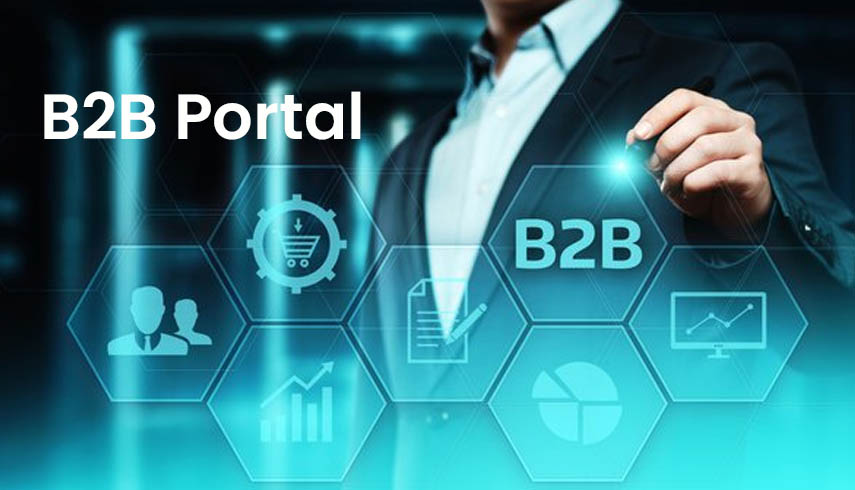Understanding the differences between B2B and B2C marketing is essential for any business aiming to thrive in today’s competitive landscape. Whether you are engaging in the B2B Marketplace in India or targeting individual consumers, the strategies and approaches you employ must be tailored to your specific audience. At GrowbusinessforSURE, we are committed to helping businesses navigate these differences to maximize their marketing effectiveness.
What is B2B?

B2B stands for business-to-business, a model where transactions occur between businesses. This includes companies that sell products or services to other businesses rather than to individual consumers. Examples of B2B transactions include a manufacturer selling raw materials to a factory or a software company providing enterprise solutions to other companies.
What is B2C?
B2C, or business-to-consumer, involves transactions between businesses and individual consumers. In this model, businesses market and sell products directly to end-users. Examples include a retail store selling clothes to individuals or a restaurant serving meals to customers.
Why Choose B2B?
Choosing a B2B model offers numerous advantages that can significantly impact your business’s growth and profitability:
Higher Transaction Values
B2B transactions often involve larger orders and higher transaction values compared to B2C. Businesses typically purchase in bulk, leading to significant revenue opportunities.
Long-Term Relationships
B2B relationships are generally more stable and long-term, providing consistent revenue streams. Businesses value reliable suppliers and are more likely to establish long-term contracts.
Specialized Products and Services
B2B markets often require specialized products or services that cater to specific industry needs. This specialization can create niche markets with less competition and higher profit margins.
Why Important B2B for Your Business
Engaging in the B2B Marketplace in India is crucial for your business for several reasons:
Expanding Market Reach
Participating in an Indian B2B Platform allows you to connect with a broader network of potential clients and suppliers. This expanded reach can open up new business opportunities and partnerships, essential for growth and sustainability.
Enhancing Efficiency
Using a B2B Portal in India can streamline various business processes, including procurement, sales, and payment processing. These platforms offer tools that make it easier to manage orders, track shipments, and communicate with partners, thereby enhancing overall efficiency.
Reducing Costs
B2B transactions often involve bulk purchasing, which can lead to significant cost savings. By negotiating better terms and prices for large orders, businesses can improve their margins and reinvest in growth.
Building Strong Relationships
The B2B model emphasizes long-term relationships based on trust and reliability. These relationships are essential for continuous business and can lead to repeat orders and referrals, further driving growth.
Key Differences Between B2B and B2C Marketing
Understanding the key differences between B2B and B2C marketing is crucial for developing effective strategies. Here are some of the main distinctions:
Target Audience
B2B Marketing: The target audience in B2B marketing is other businesses. This includes decision-makers such as procurement managers, executives, and business owners. The marketing approach focuses on demonstrating value, efficiency, and ROI (return on investment).
B2C Marketing: The target audience in B2C marketing is individual consumers. Marketing strategies focus on appealing to emotions, personal benefits, and immediate needs. The goal is to create a connection with the consumer and influence their purchasing decisions.
Marketing Channels
B2B Marketing: Common B2B marketing channels include industry events, trade shows, email marketing, LinkedIn, and other professional networks. Content marketing, whitepapers, case studies, and webinars are also widely used to showcase expertise and build credibility.
B2C Marketing: B2C marketing channels include social media platforms like Facebook, Instagram, and Twitter, as well as traditional media such as TV, radio, and print ads. B2C marketing often relies on visual and emotional appeal to attract consumers.
Sales Cycle
B2B Marketing: The B2B sales cycle is typically longer and involves multiple stages, including initial contact, needs assessment, proposal, negotiation, and final sale. This process requires building relationships and demonstrating long-term value.
B2C Marketing: The B2C sales cycle is usually shorter, with quicker purchasing decisions. Consumers often make purchases based on impulse or immediate need, leading to a faster transaction process.
Decision-Making Process
B2B Marketing: The decision-making process in B2B marketing involves multiple stakeholders and is based on logic, data, and ROI. Decisions are made after thorough research and analysis.
B2C Marketing: B2C decisions are often influenced by emotions, personal preferences, and brand perception. Consumers make decisions based on how a product or service makes them feel and the immediate benefits it provides.
Content Strategy
B2B Marketing: Content strategy in B2B marketing focuses on providing valuable information, insights, and solutions. This includes in-depth articles, research reports, webinars, and case studies that demonstrate expertise and address specific business challenges.
B2C Marketing: B2C content strategy aims to engage and entertain consumers. This includes blog posts, videos, social media updates, and promotional content that resonate with the target audience’s lifestyle and interests.
Why Understanding These Differences Matters
Understanding the differences between B2B and B2C marketing is crucial for several reasons:
Tailored Strategies
By recognizing the unique aspects of each model, you can develop tailored marketing strategies that effectively reach and engage your target audience. This ensures that your marketing efforts are efficient and impactful.
Optimized Resource Allocation
Knowing the distinct characteristics of B2B and B2C marketing allows you to allocate your resources more effectively. You can invest in the right channels, create appropriate content, and focus on strategies that yield the highest ROI.
Enhanced Customer Experience
Understanding your audience’s needs and preferences enables you to create a better customer experience. Whether you’re dealing with businesses or individual consumers, providing relevant and valuable content builds trust and loyalty.
Competitive Advantage
By mastering the nuances of B2B and B2C marketing, you can gain a competitive edge. Tailoring your approach to suit your audience’s specific needs and behaviors can set you apart from competitors and drive business growth.
Conclusion
Understanding the differences between B2B and B2C marketing is essential for any business aiming to succeed in today’s marketplace. Whether you are engaging in the B2B Marketplace in India or targeting individual consumers, the strategies and approaches you employ must be tailored to your specific audience. At GrowbusinessforSURE, we are committed to helping businesses navigate these differences and optimize their marketing efforts for maximum impact.
Engaging with the right B2B Portal in India can expand your market reach, improve efficiency, and build strong relationships. By recognizing and leveraging the unique characteristics of B2B and B2C marketing, you can enhance your business’s performance and achieve sustained growth.

